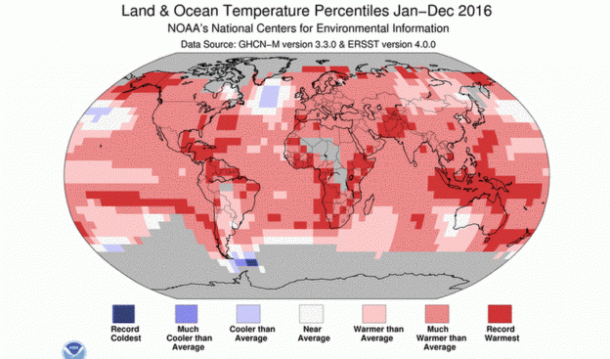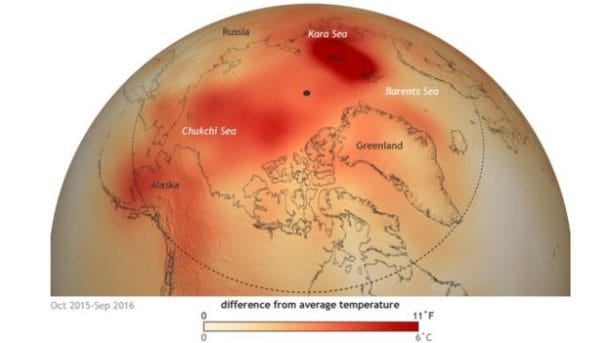It’s official! The heat of 2016 surpassed all historical temperature records! Last year was the hottest year ever since the 1880s, the year when global temperatures were first recorded. If this report sounds familiar, it is because this has happened for the third consecutive time, as concluded by both The National Aeronautics and Space Administration (NASA) and The National Oceanic and Atmospheric Administration (NOAA).
NOAA confirmed in their latest study that the previous year was the warmest on record, taking over 2015 by a few hundredths of a degree. The final tally stands at an average 2.4 degrees Fahrenheit (1.3 degrees Celsius) warmer when compared with the mean temperature of the last century.

The rise in temperatures may not sound like a big deal, but it is a huge shift on a global scale. NASA and NOAA have also agreed on the conclusion that this rise is almost entirely due to the greenhouse effect caused by human activities.
Although factoring accurate data from different weather stations and all the satellites is an arduous task, yet, NASA claims that their analysis is 95% accurate. The year 2016 also featured eight of the twelve hottest months ever recorded.
The report has focused on clearing up some claims by the climate change deniers. The latter argue that temperatures had dropped last year. However, as the report clarifies, this conclusion was made from the data that only included land temperatures during winters in the northern hemisphere. The latest analysis from NASA and NOAA considers the temperature of the water bodies as well, which is where most of our energy is stored.
The data clearly shows that most of Earth’s warming has happened in the last 35 years, with 16 of the 17 warmest years coming after 2001. This global warming has mainly resulted from the long-term atmospheric changes caused by greenhouse gas accumulation along with short-term effects from El Niño.

However, scientists do hope for a mild drop in temperatures for 2017, as the year 2016 saw the end of an El Niño cycle that began in 2014. El Niño is blamed for about 0.2 degrees Fahrenheit of the increase in global temperatures. So, while the yearly temperature may drop, we will still see a significantly large value of average temperatures.
How do you think we can play our part in reducing the greenhouse effect? Comment below!


